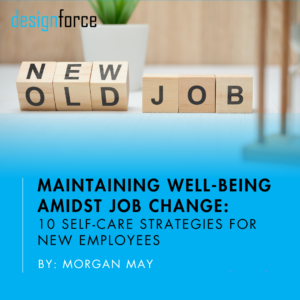
So here’s the thing – one number doesn’t fit all. There is no calculator, machine or human that can tell you how much you are worth. Gone are the days of only one career path and tenure-based promotion. Merit-based hires and raises are now the norm. The employment world is your oyster and for many that feels quite overwhelming. The opportunity for amazing professional growth has also led to confusion on how to approach the touchy subject of compensation.
Money (there I said it!) is a taboo thing to talk about (example article link). For some it feels like an invasion of privacy. Others were raised that it is “impolite” to discuss money. In the professional world talking about money can be even trickier to navigate. Although some new rules are popping up in the United States to protect employees against salary bias it is still unclear to the majority of people on what is and is not necessary to discuss during the offer negotiation process.
Below are our top tips to keep in mind during the offer negotiation process.
Tip one: Consider All Factors
Note that we have not used the word salary (a fixed regular payment) on purpose throughout this article. Compensation (the total cash and non-cash payments that an employer gives to an employee in exchange for the work that they do for the business) is SO much more than just your base salary.
Compensation could include: Base Salary, Healthcare, 401K matching, profit sharing, transportation allowance, parking spot, laptop or cell phone, cell phone reimbursement, meals, bonuses, vacation, etc…The list goes on and on.
Oftentimes individuals are so focused on their base salary that they don’t even realize all of the additional income they are leaving on the table. A base salary of 60k might not sound as good as your friends 75k salary until you realize that you get your parking paid for, weekly lunches, company credit card for travel, 100% healthcare coverage, a laptop and company cell phone. Your friend has a spiffy espresso machine at their office on top of their base salary? That’s nice..
Of course your base salary is important but don’t let that blind you from the total compensation. Be sure to review all parts of an offer before thinking about negotiation.
Tip two: Know Your Worth
There is no formula that tells you exactly how much money you should be paid (sorry to all the compensation lists out there..). Sure these can be helpful as a guideline of what to expect but the burden is on each individual to negotiate for their compensation.
Before getting into an offer stage or negotiation know what you are looking for. Calculate what you need financially to maintain your lifestyle and be realistic.
As a rule of thumb – you do not want to be providing a number to an employer first. Stating something as simple as “I am looking for a competitive offer” or writing “negotiable” down on an application allows you more flexibility during the process. This also allows for you to see where this employer thinks you fall within their organization and to see what is perceived to be a sustainable salary for you within their company.
If the offer is on par with what you are looking for that is great! If it is way off then this is typically a flag that the employer’s expectations and yours are not in alignment. Maybe a doubling of your salary is well deserved, or maybe they expect you to be at the office for twice the amount of hours than you currently work. Asking for clarity and making sure expectations are clear will help you understand where the employer is deriving their compensation level from. Being on the same page is crucial for a mutually successful offer negotiation.
Tip three: Do’s vs. Don’ts
What should and should not be talked about during an offer process is murky. Here is a cheat sheet on do’s and don’ts for the hiring process.
- Do be polite – Offer negotiation isn’t the time to burn bridges. This will hopefully be the start of your new professional relationship and you want it to begin on the right foot. Even during negotiation and disagreement you can still be polite and professional.
- Don’t respond to questions on your current salary – Although it is not illegal in DC, MD or VA to ask what an individual’s current salary is it is illegal in other states. You do not have to answer a question on what you are currently making. You can respond by stating the salary range that you would like to be at in your next position or flat out say I would like to discuss my salary expectations rather than my current salary.
- Do talk about sponsorship – If you have a visa and require sponsorship be sure to bring this up as early as possible. An employer looking to make you an offer wants to make this process as easy and painless as you do so be transparent with this information.
- Do know what you can and can’t negotiate – This varies by organization but is helpful in knowing your negotiation parameters. Maybe vacation time is tied to your title in the organization and doesn’t offer a lot of flexibility. Perhaps they will allow you to take time off unpaid instead to accommodate your travel schedule (see below for more on this..).
- Don’t be afraid to ask – If you don’t ask you’ll never know. Curious if a FSA is offered? Ask. Thinking about growing your family in the future? Ask about their maternal and paternal policy. Not clear on the expectations for when you need to be in the office? Ask for clarity. It is better to get all of your questions answered than leaving something undiscovered.
The art of offer negotiation may never be fully mastered but you can always be more prepared. Talking to others will always make you feel more comfortable in the process – family, friends, peers, mentors or career consultants.
Still feeling overwhelmed by the offer process? Catch us presenting in NYC on this exact topic at the ASID SCALE summit March 2019. You can also reach out to connect with one of our career consultants anytime for a one-on-one conversation.

Related Posts
Let's learn together.
Stay inspired and in the know on all things A|E|C.
Sign up for our monthly newsletter.










